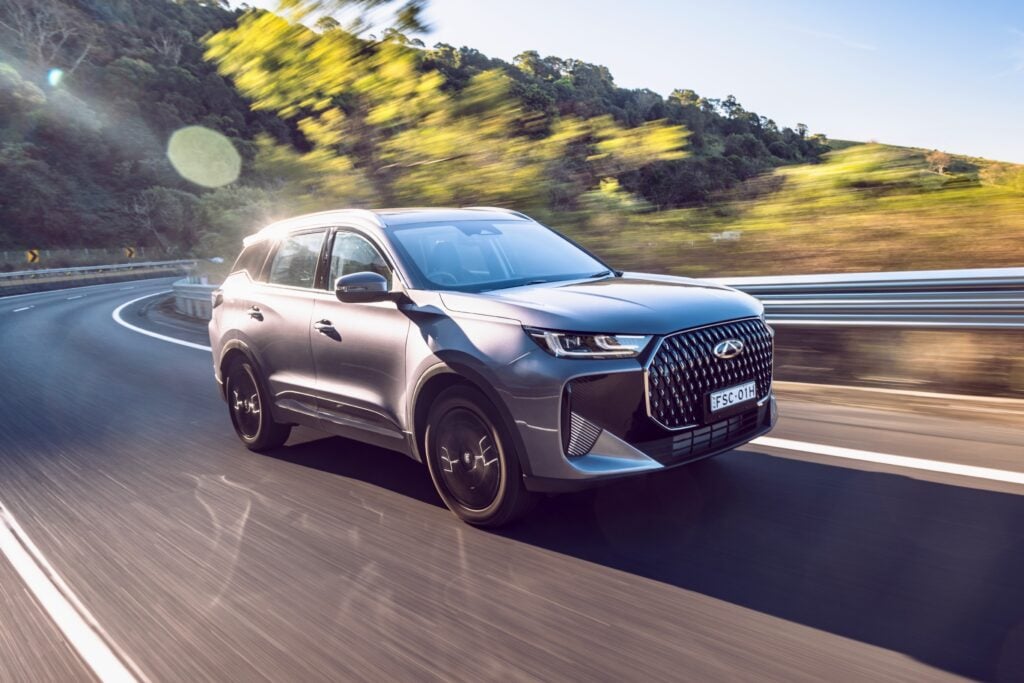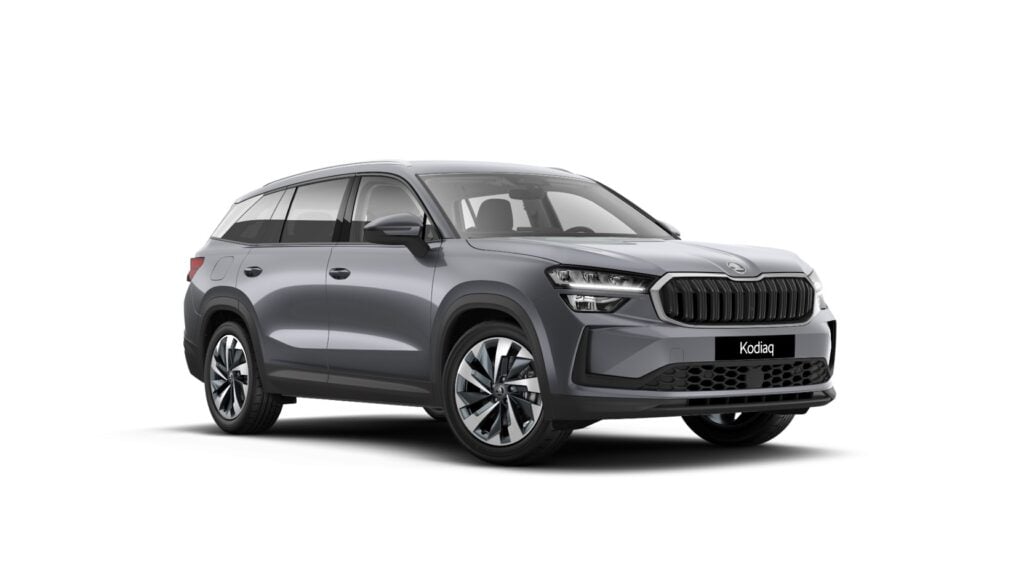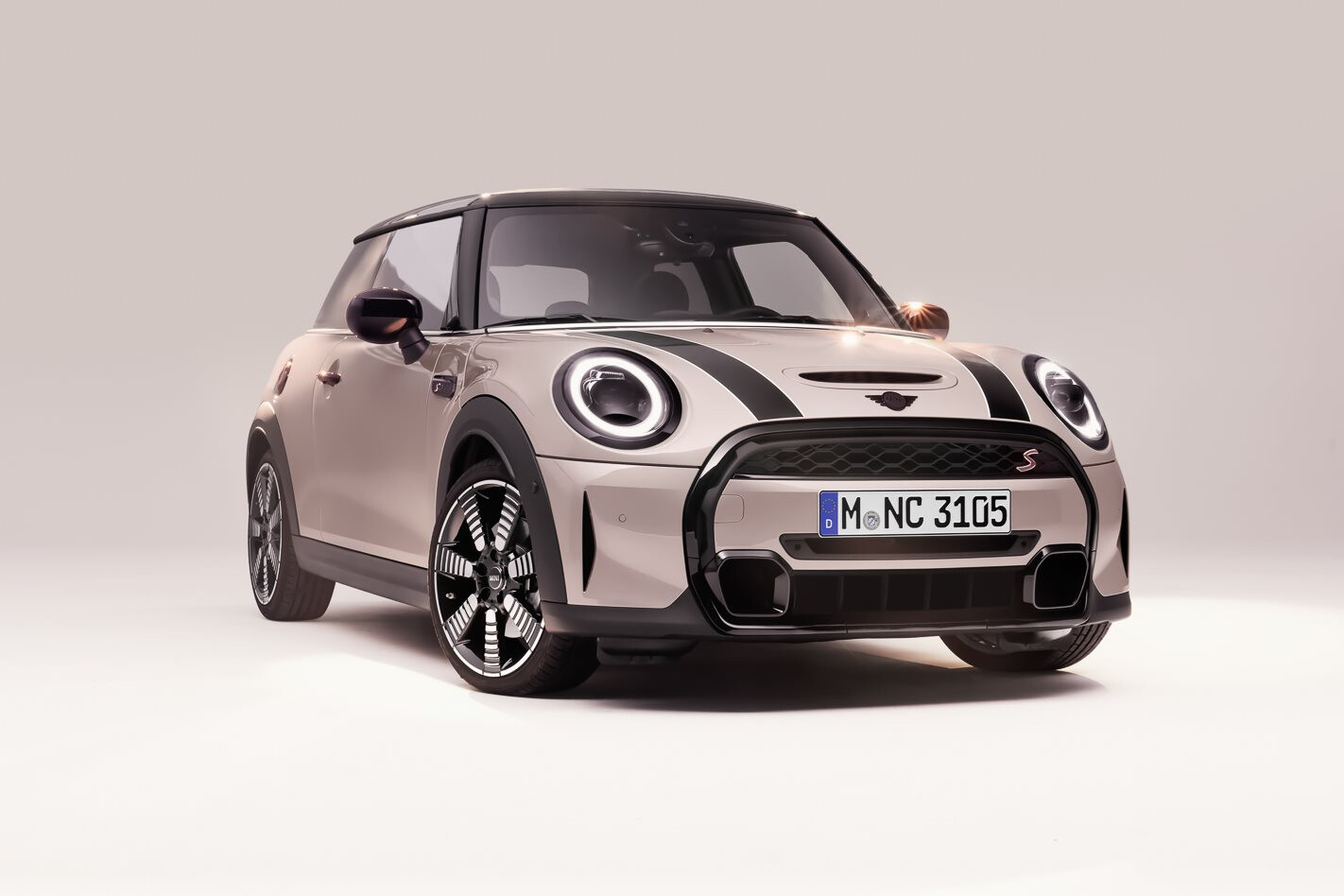
Mini has given the third-generation hatch and convertible a freshen-up for 2021; a sensible strategy given they are going to be showroom staples until 2023.
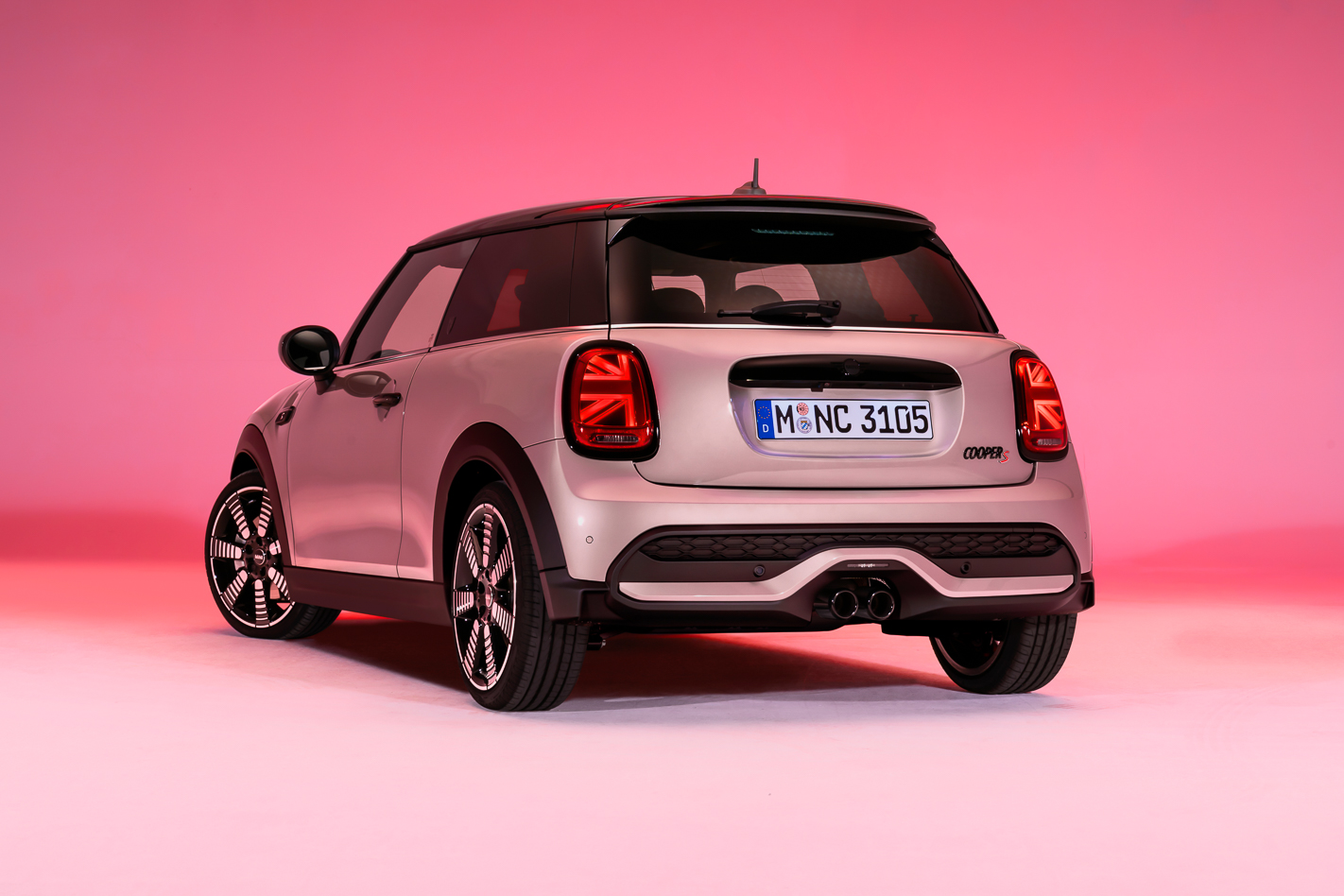
Okay, walk me through the changes
Remember the Mini’s last revamp in 2018? It was a minor titivation, with personalised name badges and whimsical Union Flag tail lamps dialled-up its inherent charm.
Cutesy, chromed curves have given way to more chiselled, aero-efficient planes that appear more generically Teutonic in their application, this time around.
Most obvious at the front is a revised bumper assembly that slots into the unchanged metalwork, grille openings are both smaller and plainer and a body-coloured panel dominating the centre, replacing the gloss black moulding installed previously.
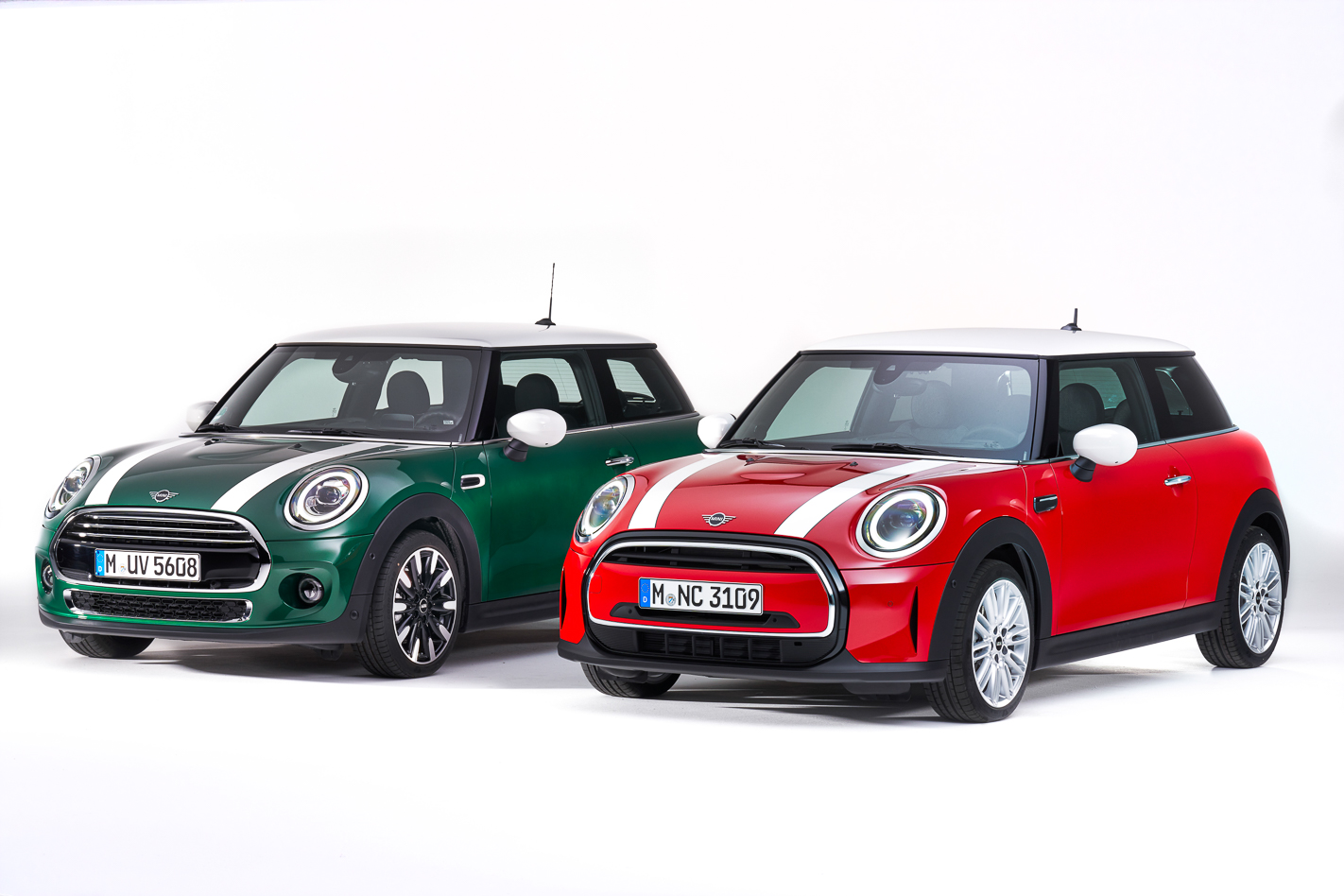
Elsewhere, the front DRL modules have given way to wind-shaping slots on the outer extremes of the bumpers, while the innards of the headlights are now black rather than silver.
Side indicators and the central rear foglamp also now employ a slither of LEDs for their illumination.
Is that it for the outside?
Yes, pretty much, aside from an assortment of new alloys and a refreshed colour palette, the biggest departure is the optional Multitone Roof, available on the Hatch for more of your hard-earned.
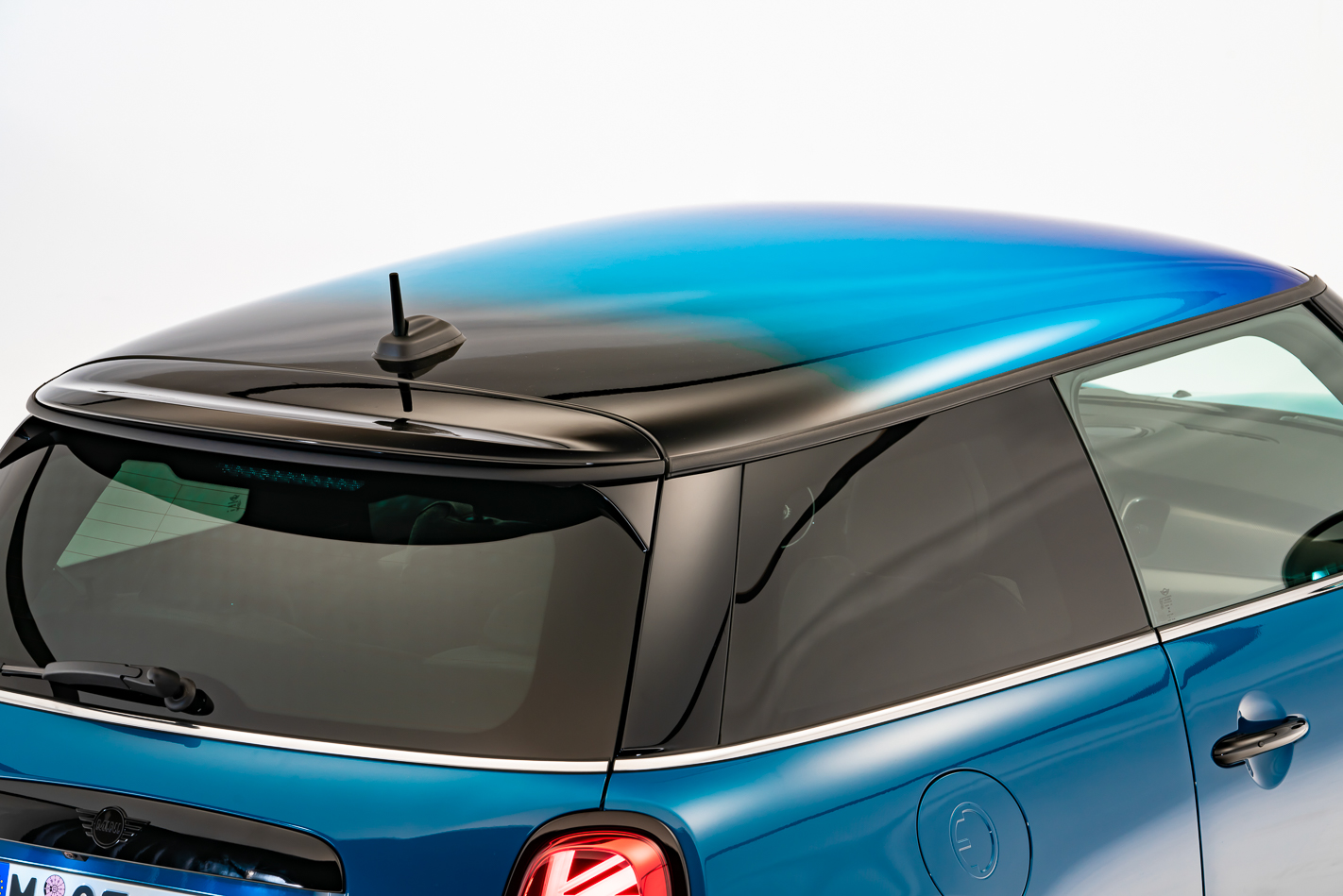
Using a technique dubbed Spray Tech, where different coloured paints are sprayed on before the preceding layer has dried, unique blends between the hues are created.
Starting with San Marino Blue above the windscreen, the central portion is Pearly Aqua culminating in Jet Black as it approaches the rear roof spoiler. We’ll reserve judgement until we see it in the metal.
It’s more of the same inside
Yet more of the irreverence many associate with Minis has been eroded inside as screens and glossy black switchgear are the order of the day.
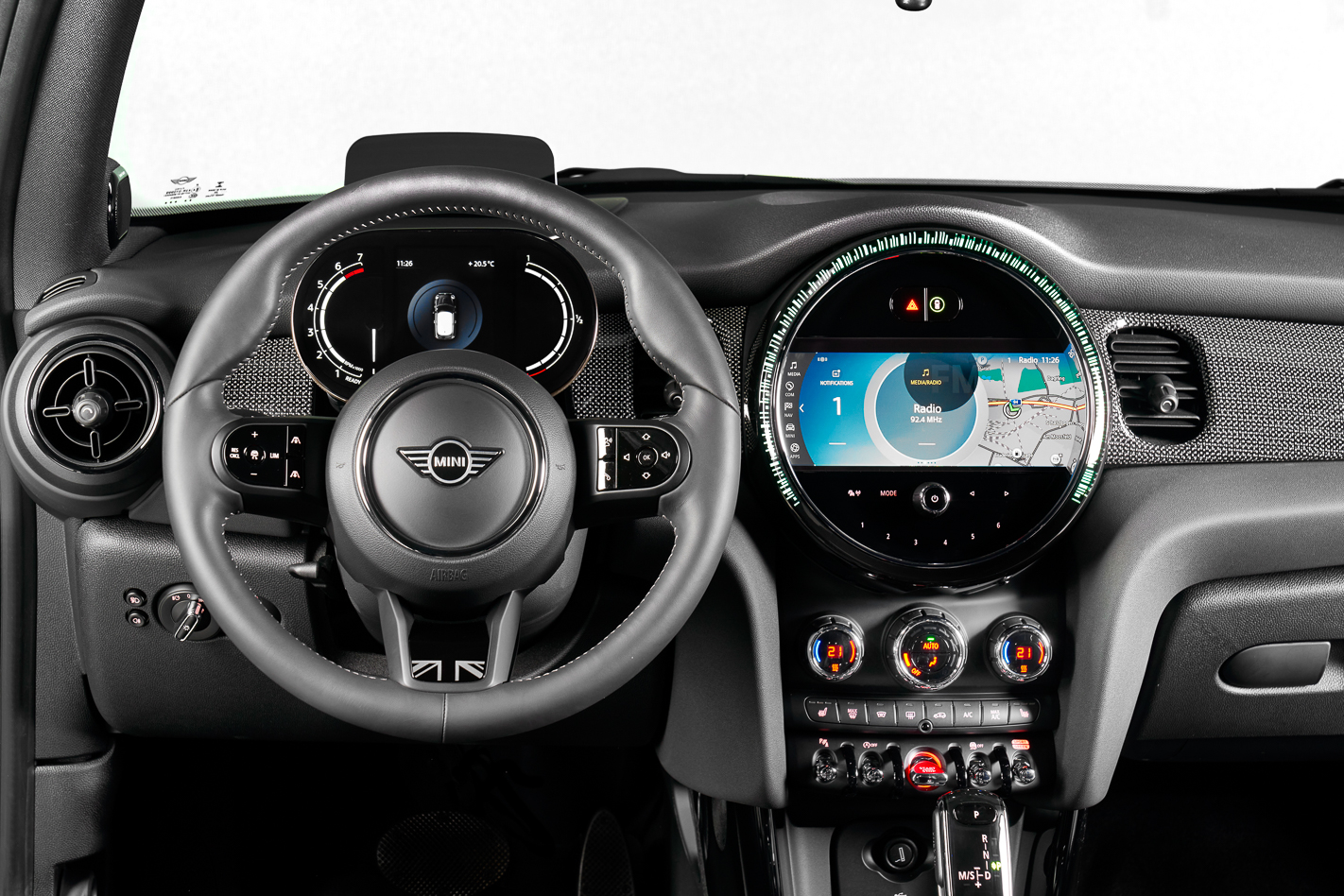
Gone is the analogue instrument pod mounted on top of the steering column replaced by a slicker, horizontal 5.0-inch instrument cluster screen similar to that already seen in the Mini Electric and John Cooper Works GP3. It’s all a far cry from the dustbin lid central speedo of yesteryear.
Flanking the revised 8.8-inch central multimedia display with its box-fresh operating system, spangly graphics and new buttons are a pair of revised air vents, while the ambient LED lighting is further complemented by Lounge (blue) and Sport (red and black) modes for the display screens.
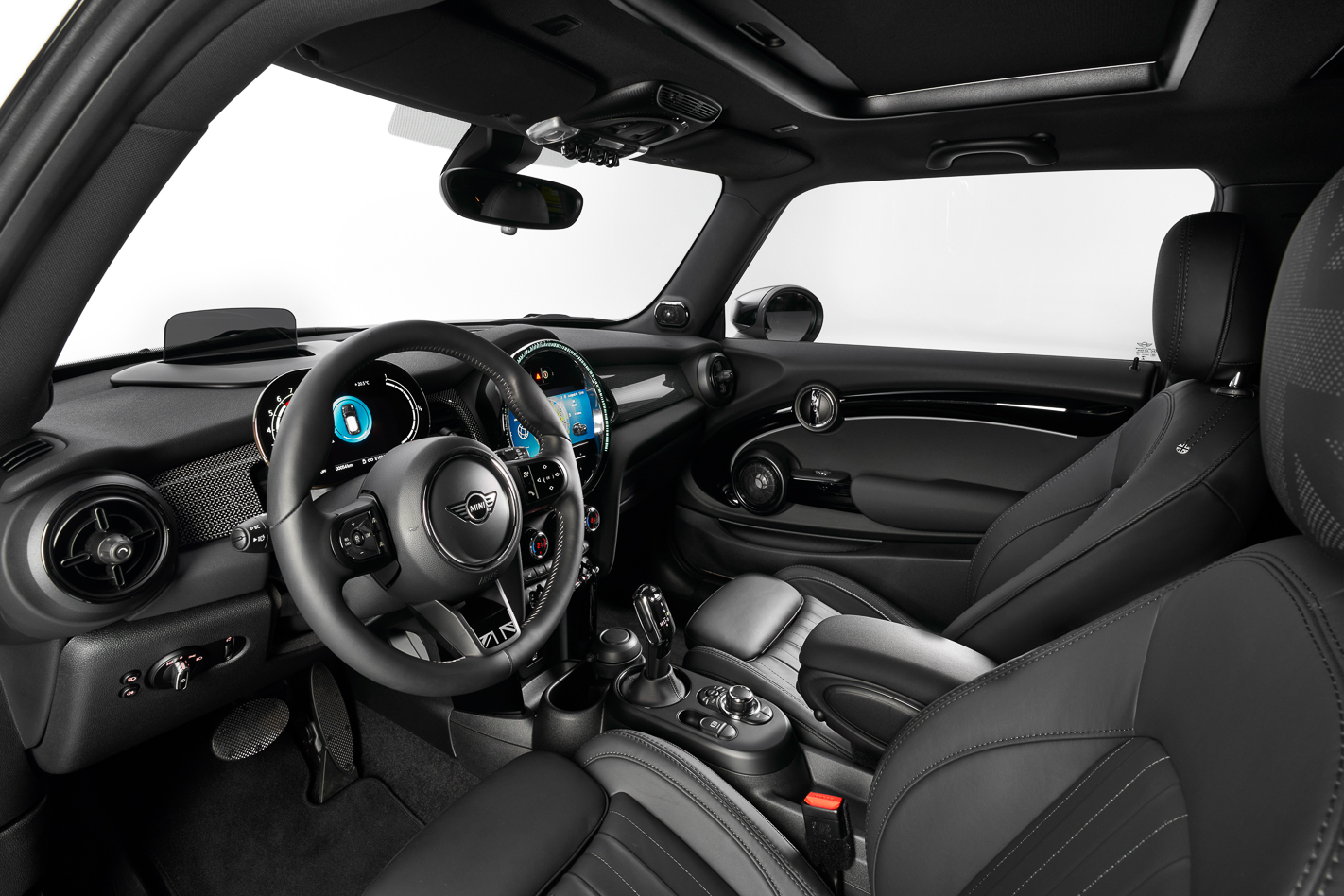
Will the 2021 Mini feel any different to drive?
Possibly, but we’ll know for sure later this year when we get our hands on one of the revised models.
Sport versions now come with a revised version of the adaptive damper system, claimed to deliver a less compromised balance between the poles of ride comfort and go-kart handling.
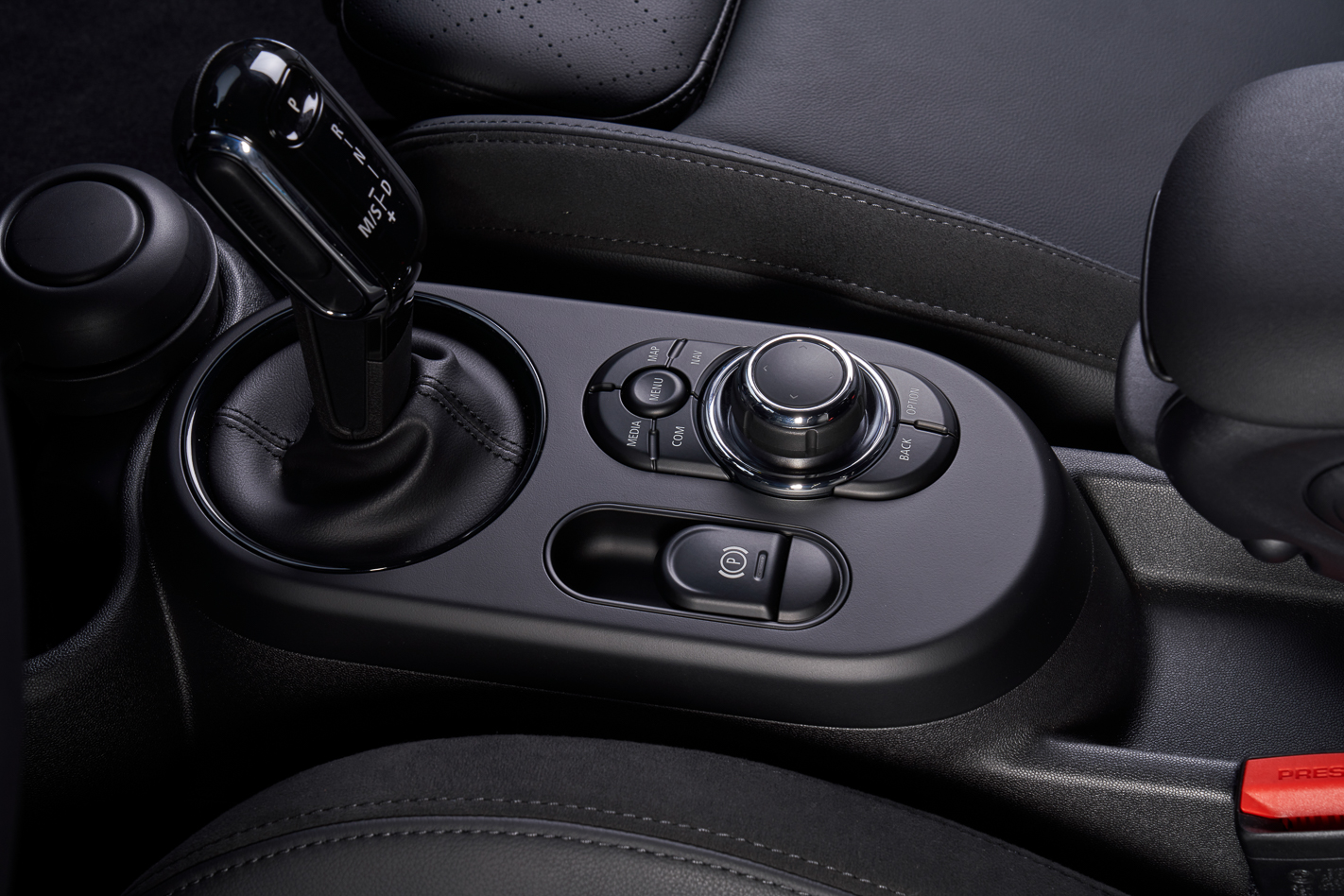
Safety wise, a new lane-departure warning system that vibrates the wheel when you wander makes its debut, as does an adaptive cruise control arrangement that will take automatic versions to a complete standstill until it’s free to proceed again.
Powertrains are essentially as before. The line-up begins with the Cooper, powered by a 1.5-litre three-cylinder turbo petrol engine which sends 100kW/220Nm to the front wheels through a seven-speed dual-clutch automatic.
The Cooper S steps up to 141kW/280Nm outputs with a 2.0-litre four-cylinder turbo petrol engine attached to an eight-speed automatic which powers the front wheels.
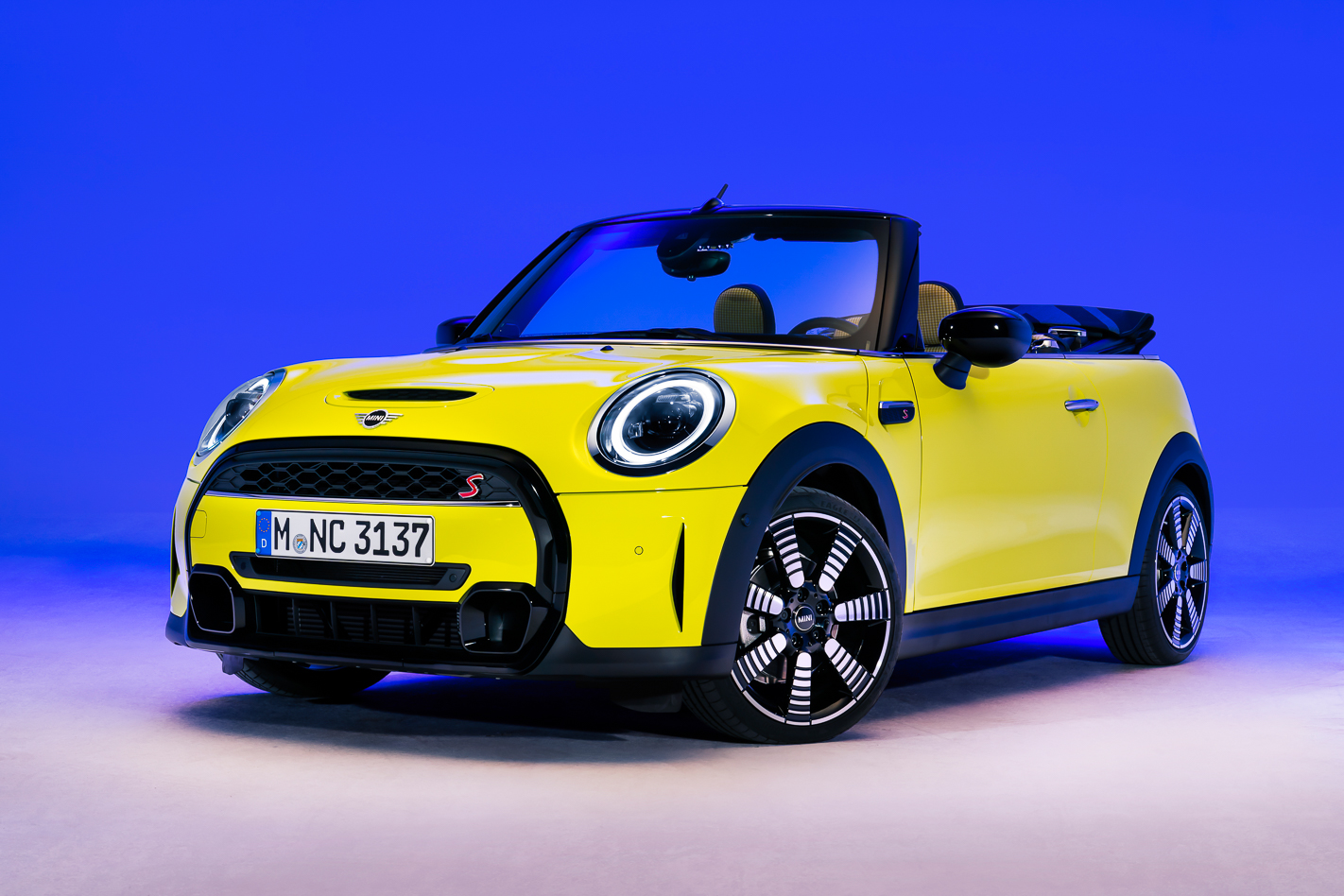
The Cooper JCW is the most powerful Mini of the standard range and features the same 2.0-litre engine, though tuned to deliver 170kW/320Nm.
If you were awaiting more concrete news on the electric JCW, then you’ll have to wait a little longer.
The new Mini range will arrive in Australia in the latter half of 2021, with pricing to be announced closer to the launch.
This article was originally published at carmagazine.co.uk.

